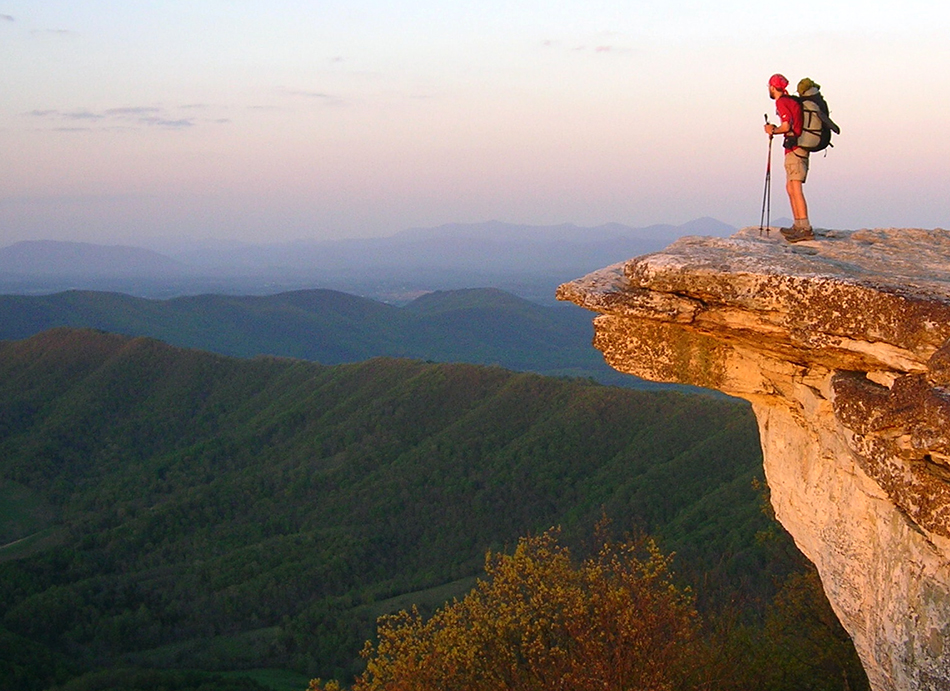Conference to Focus on Challenges and Resilience of Appalachia
February 16, 2017

As many as 1,200 people will visit Blacksburg on March 9–12 as Virginia Tech hosts “Extreme Appalachia,” the 40th annual Appalachian Studies Conference.
“By ‘extreme’ we mean the impassioned commitment people have to the region, the land, and Appalachian ways of life,” said conference chair Anita Puckett, who directs the Appalachian Studies Program at Virginia Tech, where she is also an associate professor in the Department of Religion and Culture. “The word ‘extreme’ also captures the vibrancy and commitment to place of so many mountain folks, as well as their resistance to social and economic and political forces.”
The conference title further refers to exploitative images in popular culture, such as reality-television depictions and hillbilly-horror movies, said program chair Emily Satterwhite, also an associate professor in the Department of Religion and Culture and a faculty member in the Appalachian Studies Program.
“Regionalist scholarship continues to explore ongoing struggles for racial, social, economic, and environmental justice,” Satterwhite said. “Additionally, we want to celebrate the countering power of the region’s visual, performance, and literary arts to nurture, provoke, and inspire.”
Attendees will explore Appalachia through four days of intellectual and cultural programs, research presentations, musical and theatrical performances, fiber arts and photography exhibits, documentaries, and field trips.
Appalachian scholars, residents, and activists alike will share their research and passions. Stewart Scales, a geography instructor at Virginia Tech, will be presenting his students’ research on Appalachian geography, leading a hike to the Bald Knob overlook, and performing traditional bluegrass music. His band, New Standard, will play in the Squires Student Center on March 10 at 3:30 p.m.
“We’ve been playing together since we were students at Virginia Tech,” said Scales, who earned his geography degree in 2009. “We cover original music from Bill Monroe, Flatt and Scruggs, and Ralph Stanley, as well as contemporary songs and original works. Conference attendees will get to hear traditional bluegrass music as it was originally played.”
Scales is one of more than 100 musicians, visual and performing artists, writers, artisans, and filmmakers who will be showcasing the region’s cultural practices and traditions.
Robert Gipe and the cast of Higher Ground, a community performance ensemble, will share the stories of Southeast Kentucky through “Higher Ground 6: Life Is Like a Vapor,” an original, one-act musical comedy. The free performance will take place March 10 at 8 p.m. at the Moss Arts Center.
“Everything is based on real experiences from one of the toughest communities in the United States,” said Gipe, the Appalachian program director at the Southeast Kentucky Community and Technical College. “It’s a chance for conference attendees to see real Appalachian people discussing their experiences and turning it into art.”
In addition to the performances and exhibits, the conference will be rich with scholarly research on the region and its inhabitants, changing climate, and environmental threats. James Hansen, a renowned climatologist at Columbia University and former director of the NASA Goddard Institute for Space Studies, will set the tone as the conference’s keynote speaker. Hansen is best known for his 1988 congressional testimony on climate change, which sparked the nation’s concern over the changing planet.
“By addressing the natural-resource extractions that often affect people living in Appalachia, Hansen will demonstrate how Appalachia is a member of the globalized world,” Puckett said.
A program highlight will be “Extreme Appalachia! Rage and Renewal,” a plenary convened by Barbara Ellen Smith, a professor in the Virginia Tech Department of Sociology, and Stephen Fisher, a professor emeritus at Emory & Henry College.
“We intend this plenary as a provocation,” said Smith. “We’ve designed it to tap into our anger at the many forms of exploitation in Appalachia as well as our strategic visions for how we might reinvent the region together.”
Another session — “Ecological Restoration, the Environmental Humanities, and the Re-Imagination of Appalachian Landscapes” — will explore the importance of incorporating a humanistic approach to restoring Appalachian ecologies alongside more conventional initiatives based in science, technology, and engineering. Sponsored by the College of Liberal Arts and Human Sciences and open to the public, this symposium will bring together leading scholars in the fields of law, philosophy, folklore, and ecology to promote more holistic models of regional sustainability.
The conference will feature multiple events emphasizing the diversity of Appalachian residents and the work required to promote democratic inclusivity. The Virginia Tech Office for Inclusion and Diversity will sponsor a workshop on privilege and transformation presented by the Highlander Research and Education Center. Other events include a gospel choir performance, a session on indigenous knowledges, LGBTQ gatherings and presentations, and Young Appalachian Learners and Leaders get-togethers.
The conference is sponsored by the Appalachian Studies Association, which was formed in 1977 by a group of scholars, teachers, and activists passionate about the region. It will be the first time since 1994 that Virginia Tech has served as host.
“The extreme economics of Appalachia — the excessive extraction of resources, underfunding of public services, and dismal job opportunities — have sparked community resilience and activism,” Puckett said. “We hope this conference will help advance a sustainable future for the region. And newcomers to the conference series will discover the rich tapestry of Appalachian identities.”
Conference registration is open to everyone and free to Virginia Tech students. Scales encourages Virginia Tech students and alumni in particular to attend. “Blacksburg is in the heart of the Appalachian region, and our location will help make the conference a great way to experience the region,” he said. “The more you learn, the better off the people and region will be.”
Written by Lindsey Flowers, a senior from Alexandria, Virginia, majoring in public relations.







